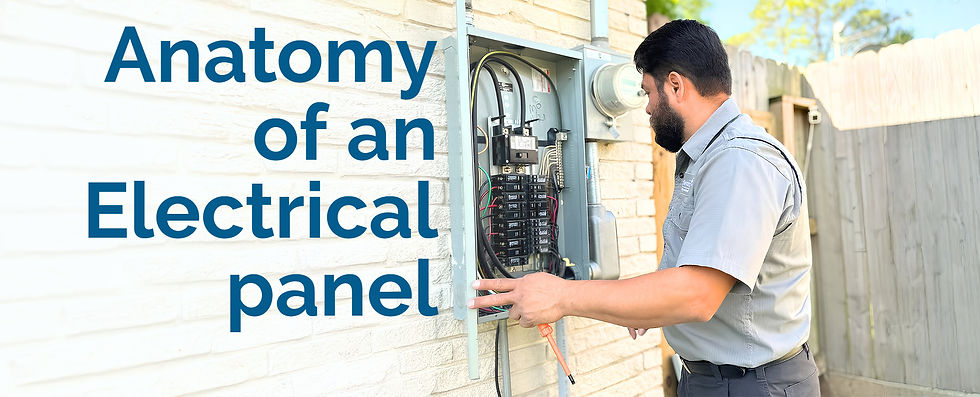Average Summer Power Usage
- Unity Services

- Jul 26, 2023
- 3 min read
What is the average power use in the summer for a 3 bedroom home?

Unity Services is in Houston, and we know it's hot here! As the temperature rises, so does the demand for electricity in households, here in Texas and across the country. If you're wondering if your power use is normal, here's a good comparison...
First, it's important to note that the power use of a home depends on a variety of factors such as the size of the home, the number of people living there, the energy efficiency of appliances, and the local climate.
However, we can make some general estimates based on average consumption data.
According to the U.S. Energy Information Administration, the average annual electricity consumption for a U.S. residential utility customer is 10,399 kilowatt-hours (kWh). This equates to an average monthly consumption of around 867 kWh. However, during the summer months, this figure is likely to be higher due to increased usage of air conditioning and other cooling systems.
Based on data from the National Renewable Energy Laboratory, a 3 bedroom home with an average energy consumption would require around 15,000 kWh of electricity per year. This works out to be around 1,250 kWh per month. However, during the summer months, this figure could increase by up to 50% or more, depending on the size of the home and the number of occupants.
To break it down further, an average air conditioning unit can use around 3,500 watts of power per hour. If you were to use your air conditioning unit for 8 hours per day during the summer months, this would equate to 28 kWh of electricity per day, or around 840 kWh per month.
Other appliances that can contribute to increased power usage during the summer include refrigerators, freezers, pool pumps, and outdoor lighting. It's also worth noting that some utility companies offer peak pricing during the summer months, which means that the cost of electricity is higher during certain times of the day when demand is at its highest.
To reduce your energy consumption during the summer, there are several steps you can take. These include:
Turning up your thermostat by a few degrees to reduce the load on your air conditioning unit.
Using a programmable thermostat to automatically adjust the temperature when you're away from home.
Installing energy-efficient windows and insulation to reduce heat transfer.
Using energy-efficient appliances and lighting.
Turning off - and unplugging - appliances when not in use.
Can you monitor your power consumption on real time?
Yes, definitely! There are several options for this, they go installed to your electrical panel and will work with a app so you can monitor your usage from your phone.
The Sense monitor will work in your home if it has a split-phase 120/240V or a 400A split-service residential panel with individual panels up to 200A. It is compatible only with electrical panels in the United States.
Installation of the Sense monitor requires a 240V circuit breaker to measure voltage on each phase. The Sense monitor consumes less than 5W. Sense should always be installed by a licensed electrician.

Real-Time Readings
The Power Meter tells you exactly how much electricity you’re using right now, with wattage steps up and down when devices turn on and off.
Notification
Set device-level notifications. Set alerts for when the garage door opens, when the sump pump turns on, when the dryer’s done, or the iron has been on for a long time.
Always On
Identify sources of energy waste. Find energy hogs, identify vampire loads, and see how much they’re costing you.
Carbon Intensity
Provides real-time carbon intensity data to help you reduce your footprint.
You can order your from you favorite home improvement store or Amazon and call us to complete the installation for you.
And if you're like us and can't escape the heat of summer, know there are ways to reduce your energy usage footprint and lower your costs. If your electricity bill is too high, give Unity Services a call and we can make recommendations to improve your home's efficiency.






Comments